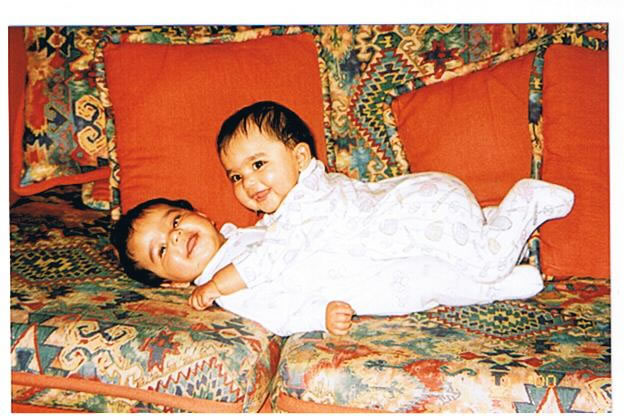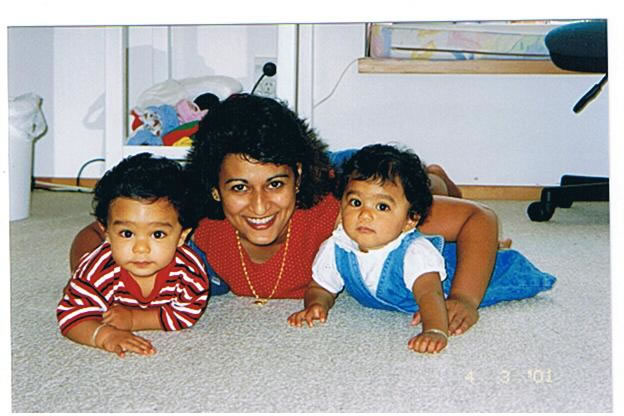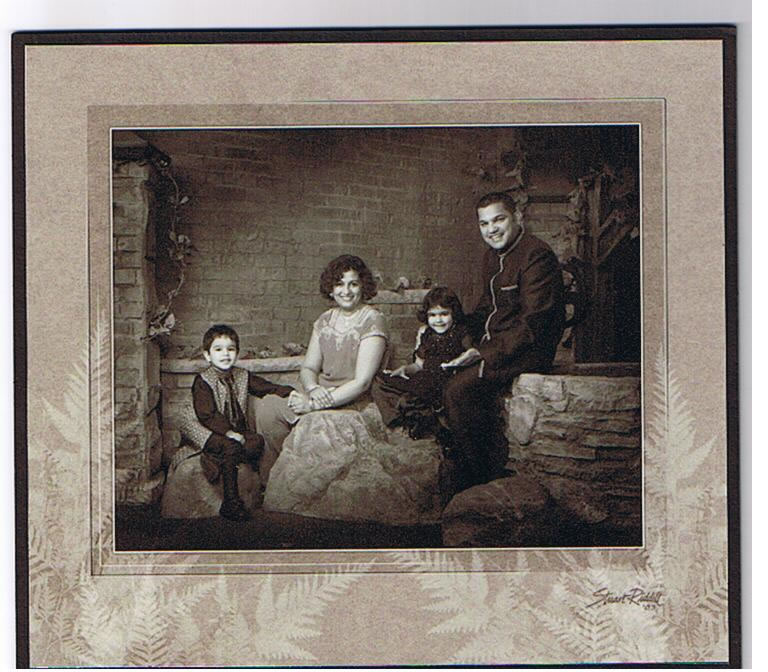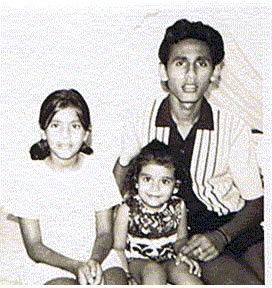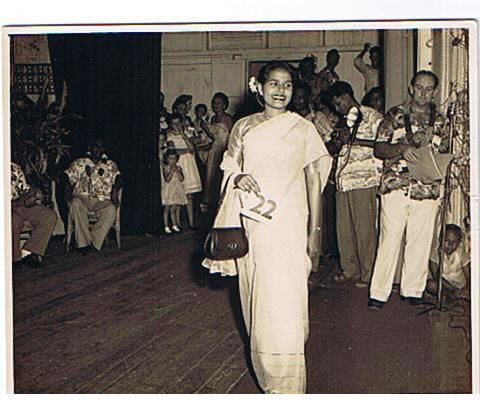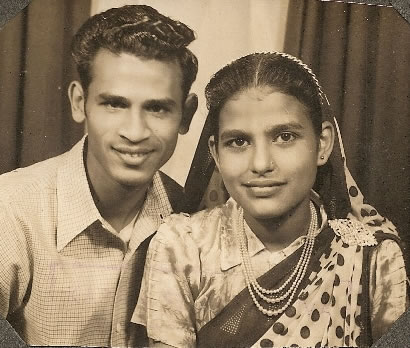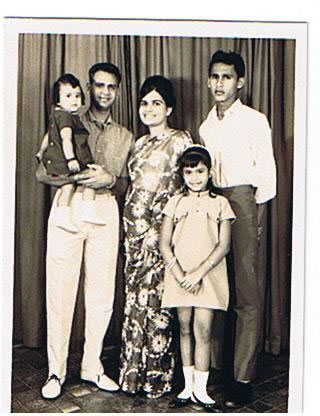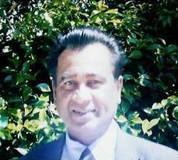Lata remembers the Bachu Clan
Some of us would have wondered at times about the Bachu clan as to where they were and how were we part of that clan. A small link to the big chain. A lot of us would have thought about Sardarin and the Bachu siblings. Whenever a few cousins, mamis, mamas, mausis, or mausas gathered, the wonderful memories of the bygone days were the topic of discussion. Those ‘bhoole bisre yaadein’ were then left there.
One such occasion was the Christmas holidays of 2006 when Raj and Kamal talked of those old days. That meeting gave birth to the ‘Bachu reunion’. I take my hat off to Raj and Kamal for actually taking the initiative to do something about it and suggesting the plan to others. Well done for your time and effort. The response was great. It needed a little tug to trigger all the ‘yaadein’ to come flooding in. Some of us really got in full drive and planning wasn’t far behind. Congratulation goes to Vanita for setting up the website. Babu would be proud of you.
“Lahron ki tarah yaadein, Dil se takrati hai, Toofaan uthati hai”
We all know ‘guzra hua zamana ata nahin dubara’ but we can all share those wonderful moments with younger generations.
Nani to me, Amma, Sirtaji, Sardarin or Mrs Bachu Sardar to others. But the most befitting title of all – ‘ the Bachu Matriarch’.
NANI
I have a vivid memory of nani but none of nana. He had died well before many of us were born and even before the youngest of the Bachu siblings, Parshu mama was born. I can imagine how interesting and fascinating tales would have been told to us all, had nana been alive when we were growing up. He was known as ‘Sardar’, but
I remember my mum telling us that she called him ‘babuji’ as did all the other siblings.
The unforgettable picture of nani’s house comes into view as I go back into time. I am fortunate to have spent time with nani when she babysat me. Amma was teaching and I was left with nani on several occasions. It was real fun time with Tulsi mama and Satish. Satish and I used to fool around a lot. Once as we were spinning around in the ‘sitting room’ Satish pushed me and I had a cut above my right eye as I fell on the door latch. I required stitches and carry a scar to this day. The thought that nani’s house doesn’t exist now is really sad as I would have loved to take Shweta, Rajnesh, Swastika and Robin to show them ‘the house’.
One vivid memory is when I, as a little girl, in a red and white printed dress sat at nani’s doorstep with a little bag waiting for Taji to pick me up in the PWD truck and take me with him to Londoni where he would frequently go to work for a few days. That was just a trick by my mum. It was to stop me crying for wanting to go with Taji. But to my dismay Taji never came and I never went.
I used to dread going to the pit toilet at nani’s. It was scarry as one had to walk past a bushy track to reach it. I used to think I would fall down into the hole. How stupid to think so.
Vishnu bhaiya attended school from nani’s house. We all used to gather around for ‘nani ki kahani’from Ramayan and Mahabarat. When I was studying in Delhi and had an opportunity to actual visit the ‘purana kila’, the battlefield from Mahabarat ‘kissa’ by nani I really felt very privileged. The ‘purana kila’ is infact the zoo these days and the fort in ruins is a reminder of Mahabarat. It was a fact and not fiction. Similarly the stories of Arjun and Krishn fascinated me. A visit to Mathura and eating ‘petha’ brought back memories of nani’s stories.
During school holidays it was a treat to sleepover at nani’s with a few other cousins. It was fun for all the children to sleep together under one ‘musori’ and be mischief. It was the innocent fooling around. The preparation used to be in full swing for ‘aam ke achaar’. Mamis and nani would be busy helping one another. Mango season used to be the best time for the kids everywhere .We cousins were no exception. It was fun pinching the raw pickle at night and eating it in bed and giggling with others. “ Khekiao nahi aur chuppe suto”, the matriarch would say to us from her room nearby. And next morning if anyone had upset stomach due to uncontrolled mango eating there was no visit to the doctor. Our grandma’s remedy of ‘karia nimak’ did the trick with a consequence of an offensive odour. Nani’s house was famous for the ‘Fiji pear’ avocado and ‘jamun’ trees. Nani utilised ‘Fiji pear’ in many ways. It was a substitute for butter for nani. ‘Jamun’ season was always welcomed by kids and adults alike. For eating raw and for ‘achaar’.
As long as I can remember, I have never seen nani without her lace-edged ‘odhni’ covering her head. Always in a white attire. White ‘lehenga’,’kurta’ and ‘odhni’. Occasionally a black cardigan accompanied. When I see the younger generations of other cultures with ear rings and nose rings, I at once picture nani. She had ear rings all around her ears, a big nose ring and silver ‘pattas’. The most striking feature of nani was her ‘samjhawan dass’. They were inseparable.
I still believe in a lot of ‘grandma’s remedies’ in modern days. Nani had some incredible remedies for most ailments eg. ‘chiraita’ an extract from the bark of Chinchona plant for ‘bukhaar’; ‘karia nimak’, black rock salt for upset stomach; ‘khaansi ke pudia’ made from the powder of ‘gol mirich’, ‘pipar’ and ‘ harre-murre’ and mixed with honey into tiny balls as lozenges for cold and cough.
We looked forward to nani’s regular visits for stories and yarns. After dinner if nani was asked to sleepover she would retort, “nahin, hamar khatiya roi”. Then someone would drop off nani at her place.
The ‘ bhundol’ of 1953 is an unforgettable event for me. It was exactly 12:30pm. Tulsi mama, nani, Satish and I were having lunch when we experienced the tremor. Tulsi mama ran outside with all of us. There was a huge commotion on the streets. A few of the Bachu siblings gathered at nani’s place during the earthquake. For the next few nights everyone slept together, huddled under the blankets. And whenever there was a slight tremor we would all run outside.
I really enjoyed attending ‘kanya khawai’ time at nani’s. Nani gathered seven young girls for that occasion. What the significance was, I did not know but what I knew was that at the end of the ceremony we would receive a new handkerchief which had somerice grains and 10 pence coin tied in it. That was a big amount for me in those days.
Funerals are solemn occasions. Some how nani’s funeral was sad but unique in the sense that the preparation involved was fascinating. I always thought that when someone died they were placed in a coffin. That was not the case with nani. Nani was laid on the ‘tikti’. With Margaret bhabhi and others I helped in getting the ‘tikti’ ready. ‘Tikti’ is a special resting cradle, made from green bamboo. Each segment is tied together with a piece of white cloth – ‘kafan’. A fine workmanship. It was a really unique piece of work. An extraordinary experience. When nani was placed in the ‘tikti’ it was very different from the usual coffin. I haven’t seen anything like that since. One of its kind perhaps.
It is unbelievable that nani and one of her daughters, Latcmi, my mum, died on the same date ie 17th January. 26 years apart. Nani in 1975 and mum in 2001.
Practically all the Bachu siblings have reignited the bygone days of my childhood some way or the other. It just needs one tiny incident of any kind to rekindle the whole lot of other memories to come flooding back.
Nani was not highly educated but was very knowledgeable. She instilled the same in her children. The Bachu siblings with whom I have spent a good time of my life are: my mum, ‘Lutch’, Ram Kuar Didiya, Daya mausi, Badka mama, Nandu mama, Tulsi mama and Parshu mama.
BADKA MAMA
Badka mama was a lovable mama and my mum held him in high esteem. If it wasn’t for him, she would not have gone to teacher training and become a teacher.She always felt indebted to him. I have memory of walking down the street with mama. As a little girl ‘piggy backing’ from mama’s house to my house. Badka mama was already living in Sydney when I migrated. I visited him frequently and he would always have my favourite pork ready. We enjoyed yarning and reflecting on old times. Mama imparted the knowledge of nana and nani’s arrival in Fiji. I am glad to have noted them down. They have indeed been a great contribution
NANDU MAMA
Nandu mama has been a very influential figure in the family. A teacher, a soccer player and a great family man were some of the qualities I admired. Not forgetting the jokes and the pranks he played on kids. I have spent some quality time with both mama and mami and have always remembered that. I always associated Vunaniu with Nandu mama’s family. We had some wonderful time there. But what stands out in my memory is ‘that whale’. Especially now during the migration period as I walk along the coast at Long Bay and see the whales I think of ‘ that whale’ in Vunaniu. It had a sad ending. The huge whale got stranded on the beach at low tide and the villagers’ efforst to free it was in vain. Later when the stench from decaying whale had subsided the villagers removed the huge bones of vertebrae to make steps for their houses. I had seen that on my walk through the village with Munna and Munni. Baby mami is a motherly figure for most of us now. She has a good knowledge and an accurate estimate regarding catering and also about certain religious significance regarding Sanatani weddings. Nandu mama was younger than amma. I clearly recall the way these two siblings used to greet each other Mama, “Tum abhi jindha hai?’ Mum, “ Haa, jub hum marega tab tummhe sanghe leke jayega.” How uncanny that these two siblings died within 12 days of each other.
DIDIYA MAUSI
Didiya looked after us doing all the chores when amma had broken her arm in an accident. Cecil would come along with Didiya some times. I have also spent time with didiya at Viesari and Fulaga St. They were the good old days. I also remember when Bimla bahini came fromLautoka to stay with us, when Bina was born and Biran and Bijen were little boys.
DAYA MAUSI
On her return from England, Daya mausi had me staying with her family at 19 Sunny Hill for a while. Mausi and amma were very close siblings. I was like a big sister to Kamal and Vimal. Kamal also spent a lot of his younger days with Kalyan and Midu.
PARSHU MAMA
Parshu mama used to babysit us. My memory of mama and mami is when amma allowed me to go to the movies with them. Talk about sitting next to mami and watching ‘Psycho’ or any scarry Hindi movie, it is great. They are a very easy couple to get along with. Mama could easily scare me about ‘ poison chade hai’ and ‘ aankhi karia hoi’ and I would cry.
TULSI MAMA
Tulsi mama’s image that sticks in mind is the striking Pacific Coach driver. Very smart and handsome in the white uniform with the white officer’s cap. I did spent some time with him and Satish whenever I was at nani’s house. Gone are those days
NASINU MAUSI
My memory of Nasinu mausi and Piyar mausi also is fairly clear. Going to Nasinu used to be exciting since there were no proper road but just a dirt track going downhill. The farm that George mausa worked on was a haven for ‘kakri’ and lots of fresh vegetables. There was a stream, a [o and ‘kuwan’ that was fascinating for us. A few farm animals to entertain us.
LUKIA MAUSI
Going to Lukia in a boat was very adventurous for us. Nani would go with us some times. Visiting Piyar mausi and Hari mausa was something to look forward to. We would join our cousins in catching prawns in the home made nets with flour bait. There were children everywhere as we had 12 cousins to play with. It was a very different atmosphere in Lukia. They had virtually everything in their backyard. A typical farming set up.
DROPATI & LUTCH
The two Bachu sisters, Dropati and Latchmi were married to two brothers. Ram Chand and Krishan Chandra respectively. ‘Badki mataji’ is what I called my mausi because she was married to my ‘ badka pitaji’. Similarly, my cousins called my amma and taji, ‘kaki’ and ‘kaka’ respectively. Badki mataji was a great tailor.
‘LUTCH’ – MY MUM
I am the older daughter of Latchmi. I have spent a lot of time with my mother. Looking back I can see where she got her strength from. Nani. She was very frank and straightforward. She did not ‘beat around the bush’. She didn’t keep any grudge against anyone. She was a staunch Arya Samaji and tried her best to follow the path of Vedic Dharm. She believed in education for Indian women in Fiji and supported Pt Gopendra Narayan Pathik and Pt Ami Chandra in whatever way it was possible to make a contribution. They were her gurus. They imparted knowledge to others. Amma instilled in us that education never ends once you stop going to school, but you gain knowledge every day. You learn from your own mistakes and from the mistakes of others. Travelling is an excellent source of knowledge. There is always something that we can acquire from others. Be it good or bad. At the end of the day the decision to embrace good and discard bad lies in our own hands. Mum believed that both man and women are equal. Both can contribute towards daily lives equally. She had some skills and talents that she utilised in her women’s club. She took part in plays at the club and enjoyed it. She encouraged others to do the same. She did not want to be idle. Her great pass time was crocheting and reading. To be respected we should respect others was her motto. We should respect each other and not be afraid of each other. There should be a limit to everything. In moderation. I admired her sincere nature and am proud to be her daughter.
I have tried my best to throw some light on the Bachu clan and the links. In doing so some of my memories may jog some of your memories. This is how I remember the Bachu clan.
God Bless

